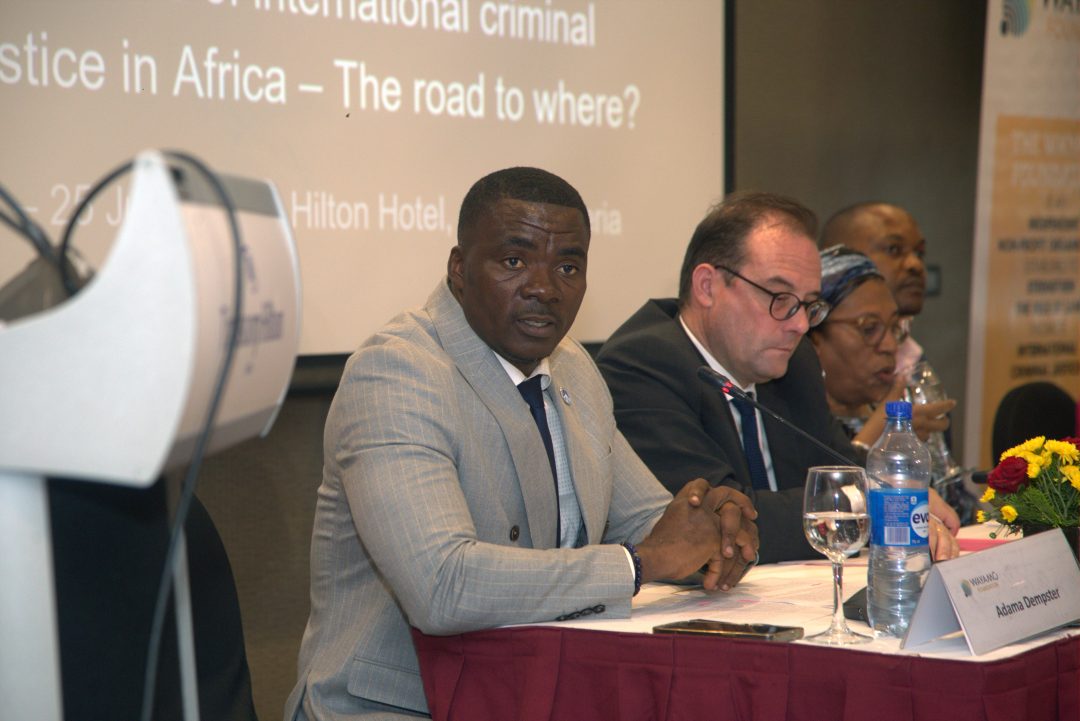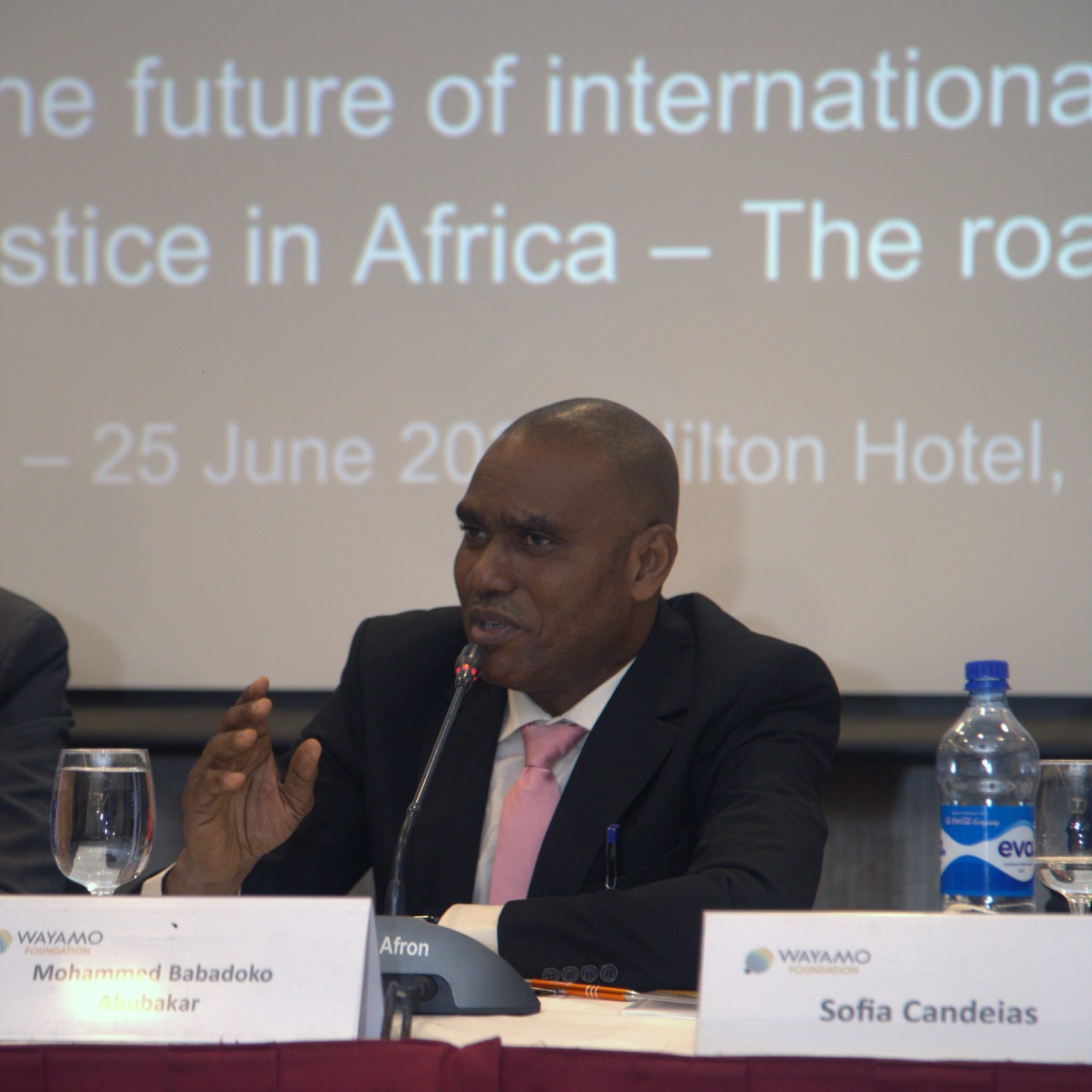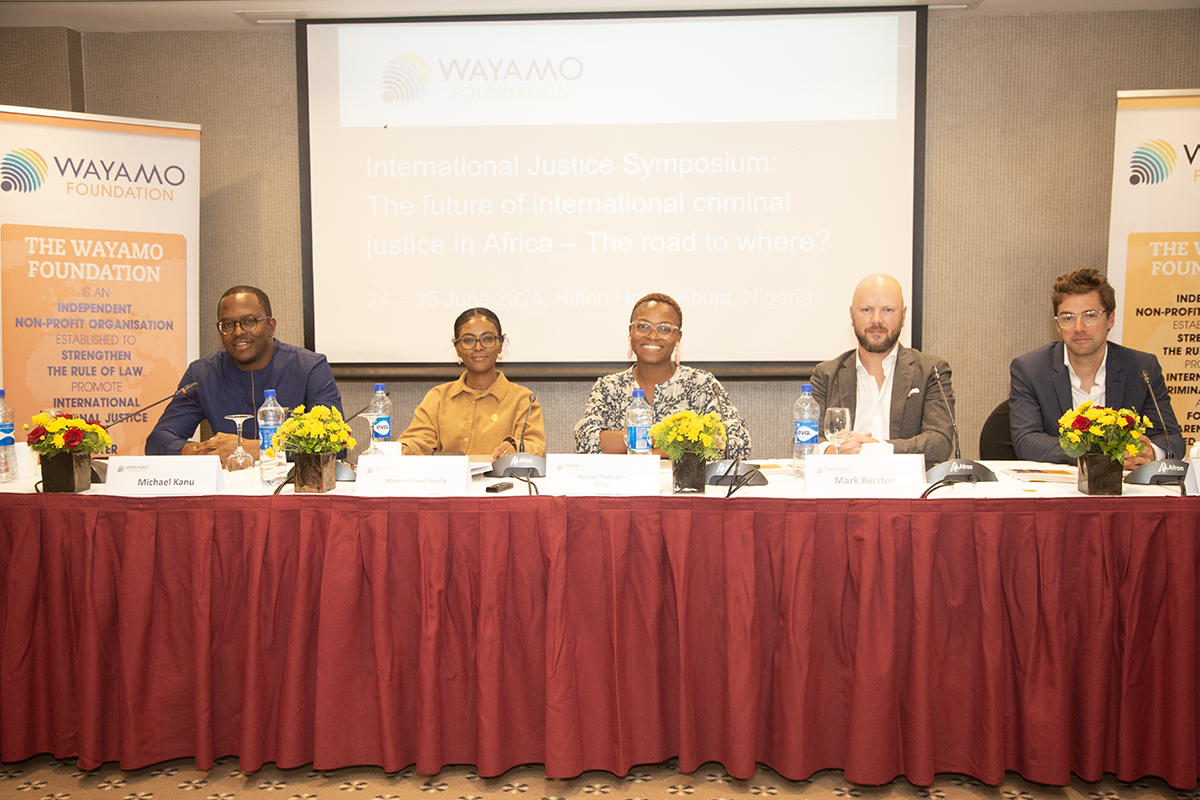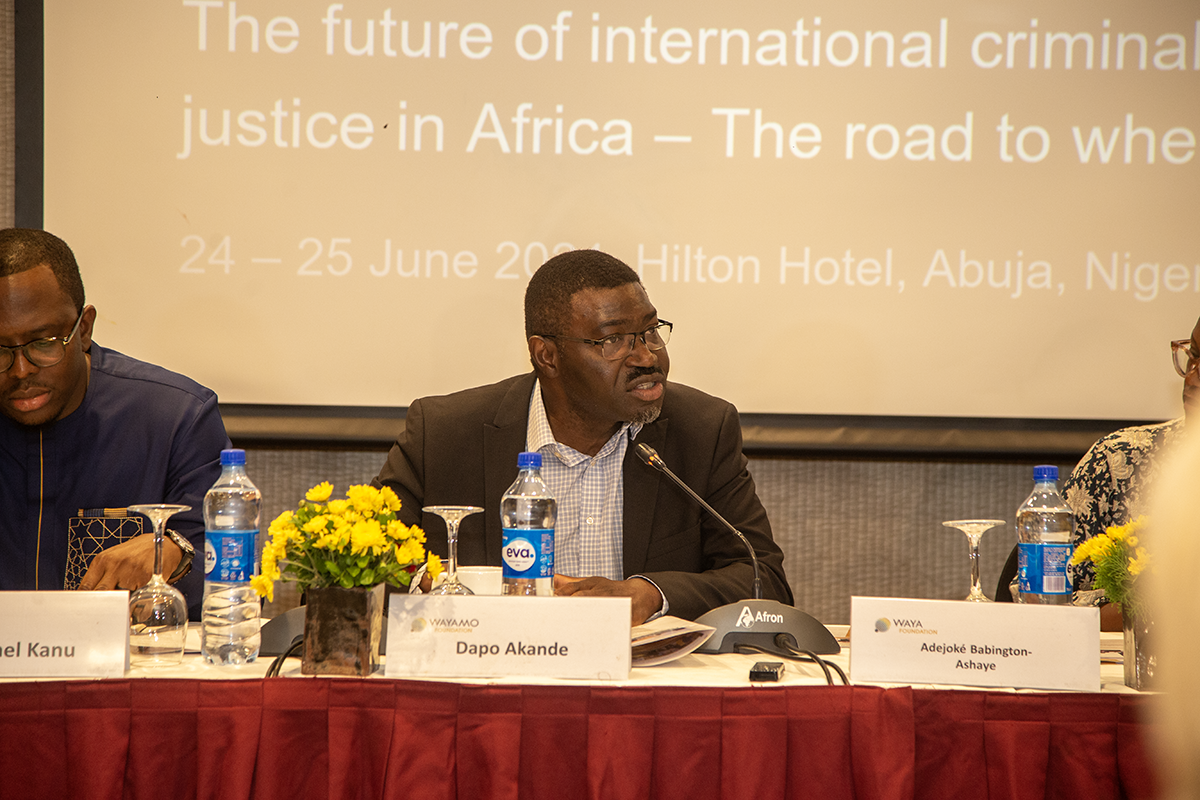From 24-25 June 2024, the Wayamo Foundation hosted an International Justice Symposium in Abuja, Nigeria, entitled “The future of international criminal justice in Africa – The road to where?”
The symposium was opened with words from Lateef O. Fagbemi, Attorney-General and Minister of Justice of Nigeria, as well as Wayamo Foundation Director, Bettina Ambach.The keynote address was delivered by the Deputy Prosecutor of the International Criminal Court (ICC), Mame Mandiaye Niang, who spoke about the ICC Office of the Prosecutor’s new approach to complementarity and its vision as being part of a larger ecosystem of accountability efforts.
The conference delved into ongoing developments in the world of international criminal law and justice, with a special focus on West Africa. Participants and attendees: were updated by civil society experts on the proposed new hybrid courts to prosecute international crimes in The Gambia and Liberia; learnt from the Guinean Deputy Minister of Justice about the ongoing trial of those alleged responsible for the 2009 Stadium Massacre in Conakry Guinea; heard from the Vice President of the Special Criminal Court in the Central African Republic about the tribunal’s work; and were informed by High Court Lady Justice Diana Mochache about her efforts to set up an International and Transnational Crimes Court in Kenya.
Two panel discussions respectively addressed the investigation and prosecution of international crimes in Nigeria and the role of Africa in addressing the crime of aggression. The former panel brought together speakers from the government of Nigeria, the ICC and civil society in a spirited and constructive dialogue over alleged war crimes and crimes against humanity committed by Boko Haram and the Nigerian Armed Forces, which required investigation and prosecution. The latter examined the relevance to African states of ongoing efforts to tackle the crime of aggression in Ukraine and to amend the Rome Statute of the ICC in order to provide the Court with effective jurisdiction to prosecute the crime.
The symposium concluded with reflections from experts, including, among others, Michael Kanu, Sierra Leone’s Ambassador to the United Nations, Meseret Fassil Assefa, Legal Counsel at the African Union, and International Law professor Dapo Akande on the future of international justice in Africa.
In an atmosphere of open and constructive dialogue, the conference afforded participants and attendees an invaluable chance of discussing new opportunities and ongoing challenges in addressing international crimes, not only in West Africa, but across the continent as a whole.
A detailed report on the proceedings will follow.





